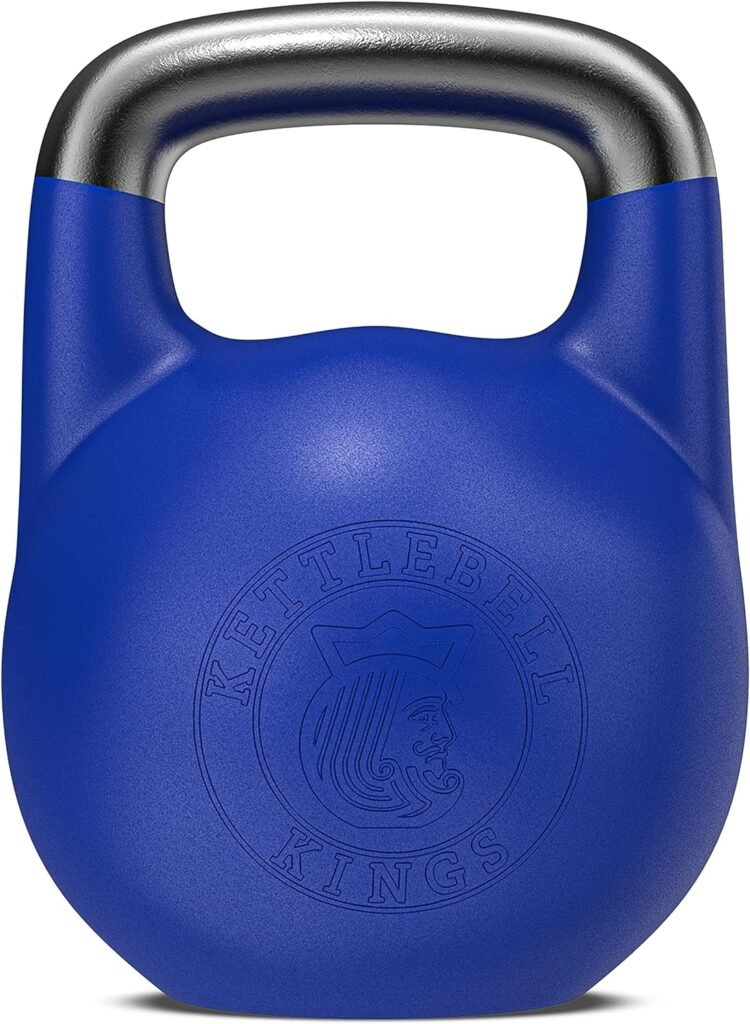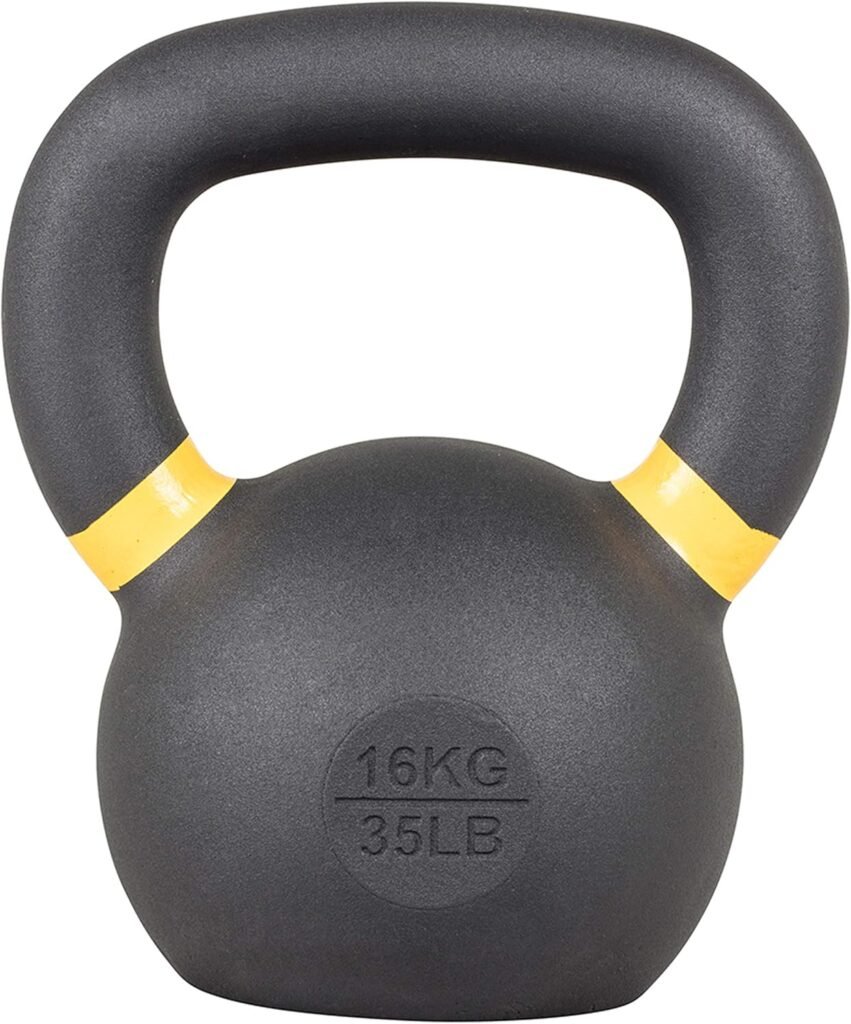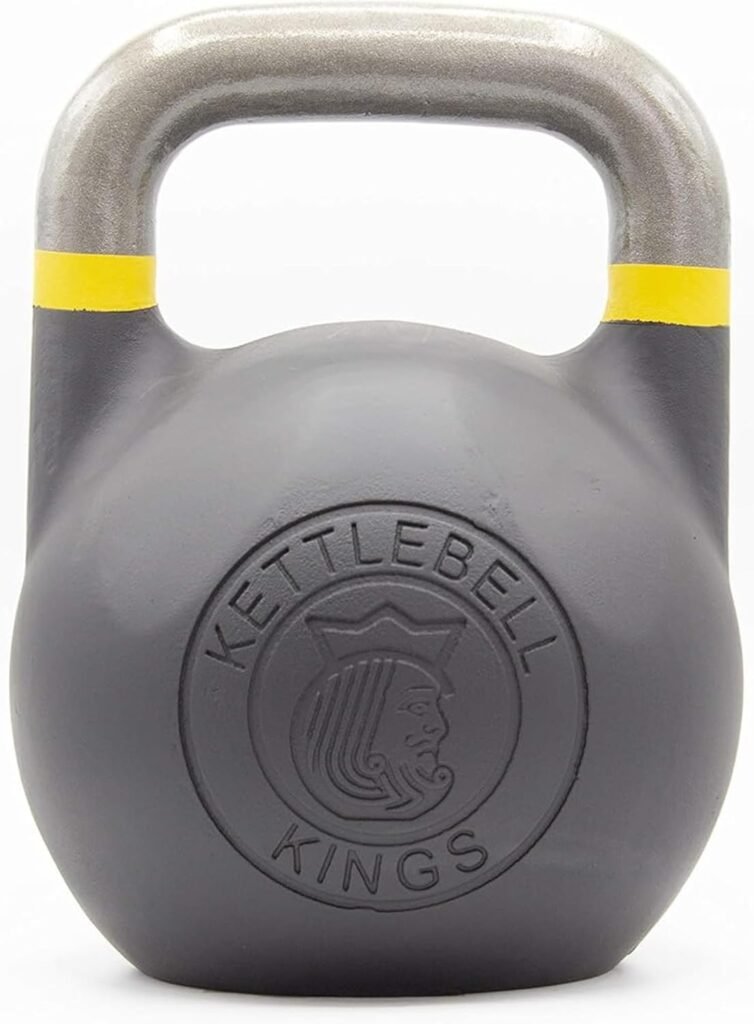Have you ever wondered how you can master both strength and stamina in one workout routine? If the notion of blending physical power with endurance piques your curiosity, and you love the great outdoors, then this guide is just for you. Using outdoor kettlebells is a fantastic way to challenge your body, improve your fitness levels, and enjoy the benefits of being outside all at once! Transitioning your workouts from the confined space of a gym to an open-air setting can rejuvenate your routine and give you a fresh take on physical exercise.
You are currently viewing a placeholder content from YouTube. To access the actual content, click the button below. Please note that doing so will share data with third-party providers.
More InformationUnderstanding Kettlebells
Kettlebells, those cannonball-shaped weights with a handle, are highly versatile tools used to enhance strength and conditioning workouts. Unlike traditional weights, kettlebells allow for dynamic movements, engaging multiple muscle groups in unison. Engaging with them isn’t just about lifting weights; it’s about performing exercises that require coordination, balance, and stability.
Brief History of Kettlebells
Kettlebells have a rich history, tracing back to the 18th century in Russia, where they were originally used as counterweights for measuring grain. Eventually, they evolved into a tool for strength training and were integrated into physical education routines. Nowadays, they’re popular worldwide, thanks to their ability to provide a comprehensive workout, building both strength and aerobic capacity.
The Unique Design of Kettlebells
The distinct shape of the kettlebell offers unique advantages. Its off-center mass enables you to perform a range of swinging and balancing movements. These engagements require your core to stabilize, providing an effective workout that harnesses strength and stamina simultaneously. The design promotes functional fitness, which can translate to improvements in everyday activities and athletic performance.
Benefits of Outdoor Kettlebell Training
Exercising with kettlebells outside combines the physical benefits of training with the mental and emotional uplift from being in nature. Whether you’re in a park, a garden, or a beach, the diverse terrain and open space add layers of challenge and excitement to your workout.
Enhancing Physical Health
Engaging with outdoor kettlebell exercises boosts cardiovascular health, increases strength, and enhances agility. The varied environment outdoors provides natural resistance and instability, which can contribute to better balance and core strength. This unpredictability necessitates greater adaptability and muscle engagement compared to indoor training.
Boosting Mental Well-being
There’s something incredibly refreshing about being active outside. It reduces stress and anxiety and promotes overall happiness. Exposure to natural light boosts vitamin D levels, contributing to better mood and energy levels. Plus, the change of scenery adds variety, keeping your workouts interesting and reducing monotony.
Practical Advantages
Training outdoors eliminates the need for expensive gym memberships or equipment. You have the freedom to workout at your convenience without the constraints of gym hours. Moreover, kettlebells are portable, making it easy to transport and use them anywhere, providing a flexible and cost-effective solution for fitness enthusiasts.
Preparing for Outdoor Kettlebell Workouts
Before you start tossing around those kettlebells, it’s crucial to prepare adequately to ensure safety and maximize the benefits of your workout.
Selecting the Right Kettlebell
Choosing the right weight is key. You want a kettlebell that challenges you but is not too heavy to compromise your form. Beginners should consider starting with 8-12 kg (18-26 lbs) for women and 12-16 kg (26-35 lbs) for men. As your strength and technique improve, you can gradually increase the weight.
Suitable Locations
Finding the right location for your workouts is important. Flat, level ground is ideal to maintain balance and ensure safety while performing dynamic movements. Parks or beach areas are excellent choices due to their wide, open spaces. Remember to account for the weather and conditions of the ground to avoid potential hazards.
Appropriate Gear
Aside from the kettlebell, wear clothing that allows ease of movement and comfortable shoes with good grip to prevent slipping. You might also consider a mat to protect your hands and knees during floor exercises. Stay hydrated and protect yourself with sunscreen if you’re training in direct sunlight.
Essential Kettlebell Exercises for Strength and Stamina
Let’s dive into some exercises that can form the core of your outdoor kettlebell routine. These movements are chosen to build strength, endurance, and flexibility, and they can all be done outside.
Kettlebell Swings
This is a foundational kettlebell exercise that’s excellent for developing power and endurance. It targets the posterior chain including the glutes, hamstrings, and lower back.
Instructions:
- Stand with feet hip-width apart, holding the kettlebell handle with both hands.
- Bend your knees slightly, hinge at your hips, and swing the kettlebell back between your legs.
- Thrust your hips forward, swinging the kettlebell to shoulder height.
- Let the kettlebell drop back, controlling the descent with a hinge at the hips.
Goblet Squats
A great exercise for lower body strength, goblet squats work the thighs, glutes, and core while improving mobility.
Instructions:
- Hold the kettlebell close to your chest with both hands, elbows pointing down.
- Stand with your feet slightly wider than shoulder-width.
- Squat down by pushing your hips back and bending at your knees.
- Keep your chest up and knees in line with your toes, then push through your heels to return to standing.
Turkish Get-Up
This complex movement builds full-body strength and coordination, enhancing your core stability and shoulder mobility.
Instructions:
- Lie on your back, holding a kettlebell in one hand with your arm extended.
- Bend the same knee as the hand with the kettlebell, foot flat on the ground.
- Use your other hand to help push yourself onto your free elbow.
- Rise up to a seated position, then lift your hips off the ground.
- Sweep your free leg back into a kneeling position.
- Stand up, keeping the kettlebell overhead.
Renegade Rows
This exercise targets the back, shoulders, and core, enhancing upper body strength and stability.
Instructions:
- Start in a plank position with hands gripping a kettlebell each, shoulders over wrists.
- Row one kettlebell towards your hip while stabilizing your body with the other arm.
- Lower the kettlebell back to the ground and repeat on the other side.
Walking Lunges with Kettlebell Press
Combining a lunge with an overhead press targets the lower body, shoulders, and core, boosting strength and coordination.
Instructions:
- Hold a kettlebell at shoulder height in one hand.
- Step forward into a lunge, lowering your back knee toward the ground.
- Simultaneously press the kettlebell overhead.
- Return to standing by stepping the back foot forward.

Structuring Your Outdoor Kettlebell Workout
For effective results, your workout should be structured to balance intensity, rest, and progression.
Sample Workout Routine
Below is a sample routine that you can follow, consisting of the exercises we’ve discussed:
| Exercise | Sets | Repetitions (or Time) |
|---|---|---|
| Kettlebell Swings | 3 | 15 swings |
| Goblet Squats | 3 | 12 reps |
| Turkish Get-Up | 3 | 5 reps per side |
| Renegade Rows | 3 | 10 reps per side |
| Walking Lunges with Kettlebell Press | 3 | 10 reps per side |
Intensity and Rest
For these routines, aim for moderate intensity. You should feel challenged but still maintain proper form. Rest for about 60 seconds between sets to recover without cooling down too much.
Progression and Adaptation
As you grow stronger, increase the weight of the kettlebell or the number of sets and reps gradually. It’s essential to listen to your body and avoid pushing too hard too soon. Progression is about steadily challenging yourself to keep improving.
Safety Tips for Outdoor Kettlebell Training
While kettlebell workouts are effective and rewarding, safety should always be your priority to prevent injuries.
Maintaining Proper Form
Focus on maintaining proper form during exercises to reduce the risk of injury. Start with lighter weights to master the movements. Keep your core engaged, back straight, and movements controlled, especially during swings and lifts.
Weather Considerations
Always be aware of weather conditions. If it’s too hot, exercise early in the morning or later in the evening to avoid heat exhaustion. In cold weather, ensure you’re warm enough to avoid muscle strains. Rain can make surfaces slippery, so it’s best to have an alternative indoor placessup if the weather turns bad.
Listening to Your Body
Your body communicates its limits, and it’s crucial to listen. Pain doesn’t always equal gain; discern between discomfort from a challenging workout and pain indicative of potential injury. If something doesn’t feel right, it’s best to stop and reassess.
Enjoying the Journey
Outdoor kettlebell training can transform not only your physical strength and stamina but also your approach to fitness as a whole. Embrace the experience, enjoy the fresh air, and find satisfaction in your progress. This approach nourishes not just the body, but the mind and spirit as well.
Consider teaming up with friends or joining a local outdoor fitness group for added motivation and social interaction. Sharing your journey with others can make the experience more enjoyable and sustainable in the long term.
In sum, mastering strength and stamina with outdoor kettlebells offers a holistic approach to fitness that breaks free from the confinements of traditional indoor routines. By committing to this dynamic and engaging form of exercise, you’ll find yourself growing stronger, more resilient, and better connected with the world around you. Your fitness journey is unique, and incorporating outdoor kettlebells is a vibrant, exciting step forward.











